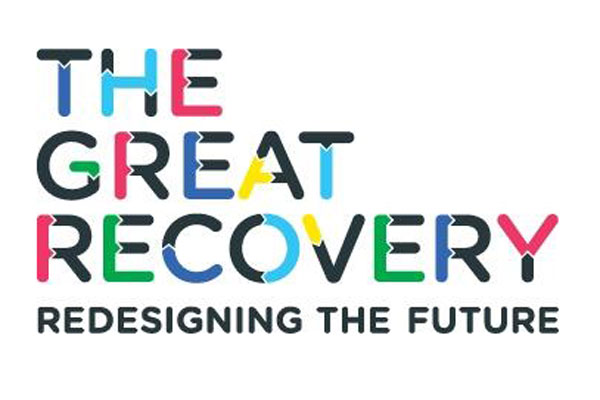The Great Recovery will soon publish the findings from its Design Residency with SUEZ, which saw four designers explore the challenges of 'bulky waste' and identify opportunities for system and product redesign to encourage reuse. Here Lucy Chamberlin shares some top tips for ensuring your own sofa has a long and useful life.
Over 83% of our sofas in the UK are not re-used. Our previous post explored this issue, introduced our forthcoming report 'Rearranging the Furniture' and told the story of our 'Survivor Sofa', plucked from landfill and reimagined and redesigned for a circular economy.
So, what can you do to avoid your own sofa ending up in landfill? Here are seven top tips from The Great Recovery.
#1 Buy the most expensive one you can afford. Or buy secondhand.
Quality and durability usually go together. The longer your sofa lasts in your living room, the longer it stays out of the landfill pile. These can be large investments, so if the cost seems prohibitive, check out #5 and look for a top quality secondhand piece.
#2 Ask more questions: become a citizen consumer
The more vocal we become as consumers, the more manufacturers and retailers will have to listen. When you’re buying a new sofa don’t be too timid to ask how long it’s expected to last, whether it has been designed with repair in mind, and where the materials are from. Even if the shop doesn’t know it’s likely that your queries will get fed back to Head Office and may set something in motion.
#3 Consider its end of life at the point of purchase
It may look wonderful in the shop, but have you considered the materials used, how it will wear, and whether it is a fashion victim or a lasting relationship? Are the covers removable and washable, and importantly does it come with a guarantee? Don’t forget to keep that receipt!
#4 Don’t cut off the fire label!
This is one of the main reasons that sofas end up in landfill rather than being resold by re-use charities. Legislation is strict in the UK, so make sure you tuck the label in rather than chopping it off.
#5 Sell or give it away online
Rather than taking it down to the local tip or recycling centre, where it may or may not end up in the re-use shed, post your sofa up on eBay or Preloved or give it away via Freecycle or Streetbank. It’s not much more time consuming than a car journey, and will ensure that it has a new life.
#6 Get it re-upholstered
Once your sofa has lost its padding and looks a bit threadbare, it may be time for a refresh. If the frame underneath is made from solid wood then it should be easily re-upholsterable, so have a look for local craftspeople or even better find a local class and learn a new skill!
#7 Support your re-use network

The Furniture Re-use Network operates throughout the UK, and there are similar local networks in many areas too. You can also book a free furniture collection from the British Heart Foundation.
Follow us @Great_Recovery
Related articles
-
Blog: Maker Walk Bristol - Mapping Urban Manufacturing
Jude Sherry
Jude Sherry FRSA is looking into what capacity does Bristol have to produce the products the city needs?
-
Blog: Recycling - the USB plug for a circular economy
Sandy Roger
The standardised USB plug removes confusion, waste and inefficiency in our IT systems; Sandy Rodger argues that standardising our recycling processes would do the same for end of life material recovery.
-
Blog: Why is the circular economy transformational (and not just a smaller elephant?)
Sandy Rodger
Sandy Rodger FRSA explains why Circular Economy is a force for creating a new, transformational, conversation about resources - and not just a smaller elephant.



Be the first to write a comment
Comments
Please login to post a comment or reply
Don't have an account? Click here to register.